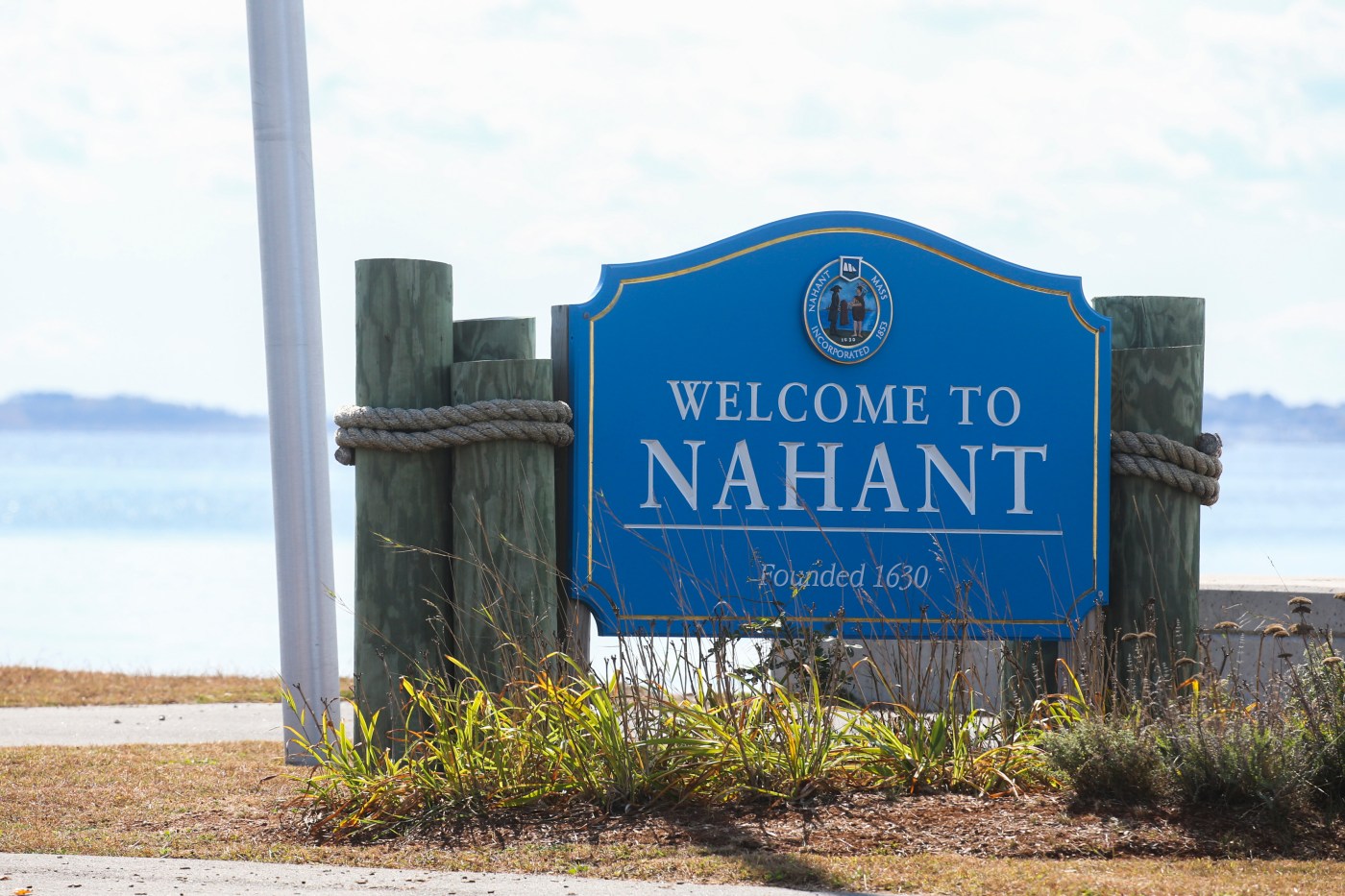
Massachusetts town that sued Northeastern University over land dispute loses lawsuit in appeals court
The smallest town in the Bay State has lost its lawsuit against Northeastern University over a heated land dispute involving a new research facility.
The Massachusetts Appeals Court has sided with Northeastern in the lawsuit brought by the town of Nahant, the Nahant Preservation Trust and dozens of residents.
The suit revolved around 12 acres of undeveloped registered land on a peninsula known as East Point in the small North Shore town.
Northeastern had acquired a 20.4-acre parcel, including the 12 acres in question, from the federal government in 1966, and has operated its Marine Science Center on a developed portion of the parcel since the late 1960s.
The town owns about eight adjacent acres, located south of Northeastern’s property, that it acquired from the federal government in the mid-1970s — and that’s now the site of a public park known as Lodge Park.
When Northeastern announced plans to expand the center by constructing a new research facility on the undeveloped portion of its parcel, the town, Nahant Preservation Trust and 28 residents “mounted a vociferous opposition,” the appeals court wrote.
Ultimately, two separate but consolidated lawsuits focused on two issues.
The first issue was whether Northeastern permanently dedicated the 12 undeveloped acres of its land to the public for use as an “ecological preserve and for passive recreation.” As a result, the question was whether Northeastern could proceed with the project to expand the center without first obtaining the approval of the Legislature under Article 97 of the Massachusetts Constitution.
The second issue was whether, as the town claimed, Northeastern was banned from building on the land because the town had relied on Northeastern’s purported assurances that the land would be preserved when the town acquired and developed Lodge Park.
A Superior Court judge previously sided with Northeastern, and then this appeal followed from the town.
“We conclude that the plaintiffs have no reasonable expectation of establishing that Northeastern dedicated the twelve acres at issue to the public for use as an ecological preserve,” the appeals court wrote in its ruling on Monday. “As a result, the land is still privately held by Northeastern and is not subject to art. 97.
“Additionally, we conclude that the town has no reasonable expectation of proving that Northeastern made an ‘unambiguous promise’ to preserve any of its land as an ecological preserve, a wildlife refuge, or as open space,” the appeals court added. “Accordingly, the allowance of summary judgment in favor of Northeastern on all claims was proper.”
In 2018, Northeastern announced plans to build a new 55,000 square-foot research facility in the disputed area. This plan was not well received by the town and the Nahant Preservation Trust, which sent a letter to Northeastern asserting that the university 50 years ago made a dedication to the public of the area where the new building would be located.
Therefore, according to the trust, the land was subject to Article 97 — and the project could not proceed without legislative approval.
Northeastern then filed a complaint in Land Court seeking a declaration that it had not made a public dedication of the land. Within days, the trust responded by launching an action in Superior Court seeking to apply Article 97.
“Article 97… declares a ‘public purpose’ in ‘the protection of the people in their right to the conservation, development and utilization of the agricultural, mineral, forest, water, air and other natural resources,’ ” the ruling reads. “Thus, ‘lands and easements taken or acquired for such purposes shall not be used for other purposes or otherwise disposed of except by laws enacted by a two thirds vote… of each branch of the general court.”
The appeals court in this case looked for whether there was “a clear and unequivocal intention” to dedicate portions of Northeastern’s property to the public.
The court wrote, “Our review of the summary judgment record, in the light most favorable to the plaintiffs, leads us to conclude that no jury could reasonably find that Northeastern clearly and unequivocally intended, let alone did — permanently dedicate the disputed area (or any portion of its property) to the public for use as an ecological preserve and for passive recreation.”


